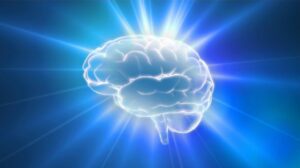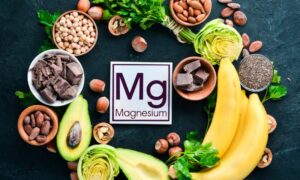Your digestive system will process 170,000 pounds of food over the course of your life. Your digestive system has more nerve endings than your brain. These facts are amazing and helps us to realize how critical the digestive system is to human health. One of the most important functions of your digestive system is to physically and chemically break down food to allow for absorption further down the digestive tract. What is the point of eating all this healthy food if your body cannot break it down properly to get the nutrients that it needs to benefit you? We feel the digestive system is one of the most important yet overlooked systems in your body.
A simple way to think about digestion is to equate it to a car wash. Each phase in the car wash is critical and dependent on the previous phase being completed. These steps must occur in the right order. You would never dry the car before it’s been soaped. So let’s break the digestive process down so that you have a better understanding of how this amazing sequence of events takes place and turns your food into nutrition to fuel your body.
>> Click here to download our guide to Eliminate Irritable Bowel Syndrome once and for all!
Phase 1 – Food for Thought
Digestion starts in the brain. The smell and anticipation of food triggers the brain and digestive system to start releasing enzymes and gastric juices to prepare for the incoming meal. It is important that you are in a calm and stress-free environment when you eat. This will keep your body in the “rest and digest” mode.

Phase 2 – Chew Your Food: your stomach does not have teeth!
Mom was right, chewing your food is good for you, but she may not have told you why. Chewing your food is one of the most critical steps to digestion. The physical crushing of food in your mouth breaks increases the surface area of your food and unlocks the nutrients in the food for further digestion in the stomach.
Chewing your food also stimulates stomach secretions and mixes your saliva with your food to start the breakdown of carbohydrates. This critical step is not reproduced anywhere else and therefore is critical to the process. If you food is not properly chewed it will disrupt the entire process that follows, there is nothing that can replicate this step for you.

Phase 3 – Stomach
When food enters the stomach, your stomach starts to secrete hydrochloric acid and digestive enzymes that work mainly on breaking down protein. The hydrochloric acid also sterilizes your food stomach to prevent bugs that may be in your food from entering your bloodstream.
A common reason for heartburn is a lack of stomach acid secretion or dilution of enzymes. This results from not chewing your food, or drinking lots of water with your food. Food remains partially digested and starts to rot. This rotten food becomes acidic (lactic acid), which is acidic enough to burn your esophagus, but not acidic enough to digest your food properly. For this reason, in our office, we often prescribe digestive enzymes that actually acidify the stomach contents.
Phase 4 – Pancreas
The next step once the food has been sterilized and acidified is to further break down that food via the release of pancreatic enzymes. The pancreatic enzymes also alter the pH of the food to make it more alkaline in preparation for entry into the jejunum.

Phase 5 – Gallbladder Secretion
The final major step in digestion takes place once bile is released to emulsify fats. These fats are chemically broken down by bile so that they can be absorbed. The gallbladder does not make bile, it stores it. Bile is made from cholesterol and toxins that are neutralized by the liver. Bile not only digests fats but it further sterilizes the bowel and promotes regularity.
The physical and chemical breakdown of food is critical to proper digestion and absorption. The problem with undigested food is that it is these food particles can leak into the bloodstream. Then the immune system will recognize that food particle as an invader. This is where lots of food sensitivities come from. This immune response can also increase inflammation and raise blood sugars, causing a system-wide reaction.
What can you do to help with proper digestion?
- Choose the right foods
- Chew your food thoroughly
- Don’t drink more than 8 oz. of fluid with meals
- Eat in a relaxing environment
- Eat fresh fiber first
- Eliminate food allergens (get tested)
- Identify and eliminate any microbes or parasites
- Get a comprehensive stool test to identify digestive system health
At the Onna Lo MD Clinic we help you get to the underlying cause of your digestive issues, instead of just treating the symptoms. We help you find out WHY you don’t feel well and what you can do about it.
>> Click here to download our guide to Eliminate Irritable Bowel Syndrome once and for all!




